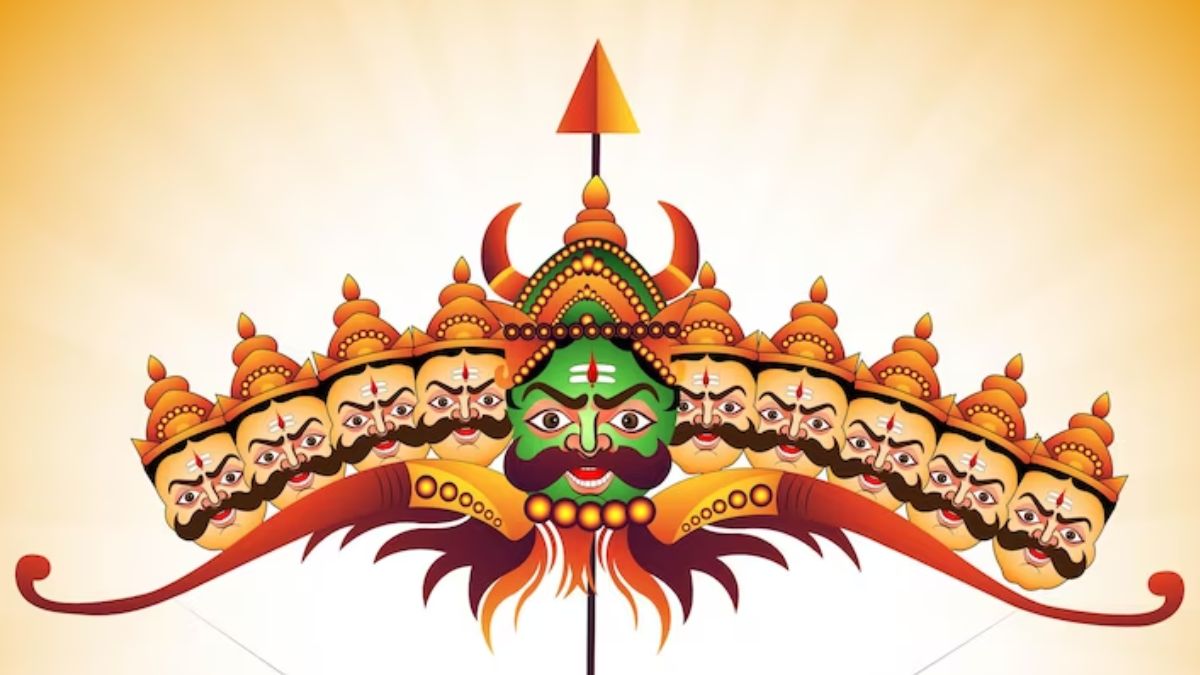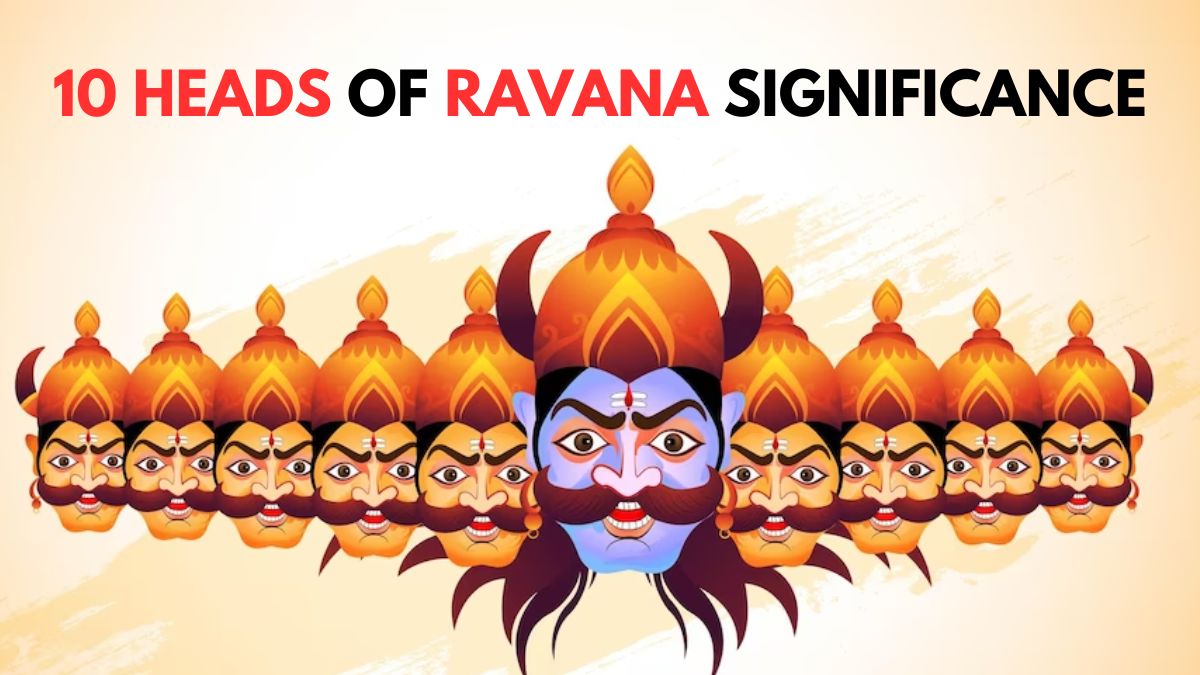- By Kashish Rai
- Sat, 21 Oct 2023 11:55 AM (IST)
- Source:JND
Dussehra 2023: In the Ramayana, Ravana plays a significant role and is regarded as a great warrior and demon king. Though Ravana is also a knowledgeable scholar, he is frequently portrayed as an antagonist. He knew about the four Vedas and six Shastras. He also wrote the Shiva Tandava Stotra. Additionally, Ravana is regarded as Lord Shiva's most adored devotee. Even though Ravana was a skilled warrior, a fine monarch, an astrologer, and an expert in Ayurveda, he fell victim to various vices. Scholars of sacred literary texts came to believe that the 10 heads of Ravana symbolised the weaknesses of the king as the evil traits took over his nature and ultimately led to his downfall. The six shastras and four Vedas that Ravana had mastered are thought to be represented by his ten heads, as he was a scholarly monarch. The 10 heads could be interpreted as a representation of Ravana's mental prowess, which was said to be 10 times more than that of the typical person. Let us know more about the significance of the 10 heads of Ravana.

The 10 heads could be interpreted as a representation of Ravana's mental prowess, which was said to be 10 times more than that of the typical person. (Image Source: Freepik)
Dussehra 2023: Significance Of The 10 Heads Of Ravana
1. Kama (Lust) - Due to his obsession, Ravana abducted Lord Rama's wife Devi Sita, which finally brought about his demise.
2. Krodha (Anger) - Ravana's rage at not getting what he wanted was one of the key factors in his demise.
3. Moha (Attachment with possessions) - In order to upkeep his possessions, Ravana crossed all moral and ethical limits since he was attached to them.
4. Lobha (Greed) - Ravana's greed drove him to kidnap Mata Sita since it had overcome him which also caused him to perform unethical behaviour and bash all the morals.
5. Ahamkara (Ego) - Ravana's inflated ego led him to adopt actions to safeguard his self-image, which kept him from realising his errors.
6. Mada (Pride) - Ravana was proud of his intelligence and military skills despite being a knowledgeable king.
7. Ghrina (Hatred) - Ravana was filled with hatred for other people. He was ultimately destroyed because of his hatred of other people.
Also Read: 4 Life-Transforming Lessons To Learn From Lord Hanuman For A Successful And Happy Life
8. Maatsarya (Envy) - The demon king was jealous of others and would use any means necessary to obtain everything they possessed.
9. Bhaya (Fear) - Ravana committed wicked acts out of fear of losing his possessions.
10. Jaddata (Insensitivity) - Ravana was allegedly self-centred and unconcerned with other people's feelings.
(Disclaimer: This is based on general public information. Jagran English does not confirm its veracity. Before adopting any measures, consult an expert from the relevant field.)

